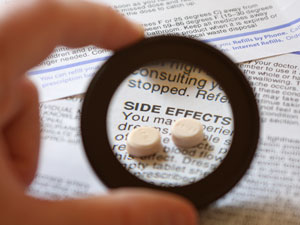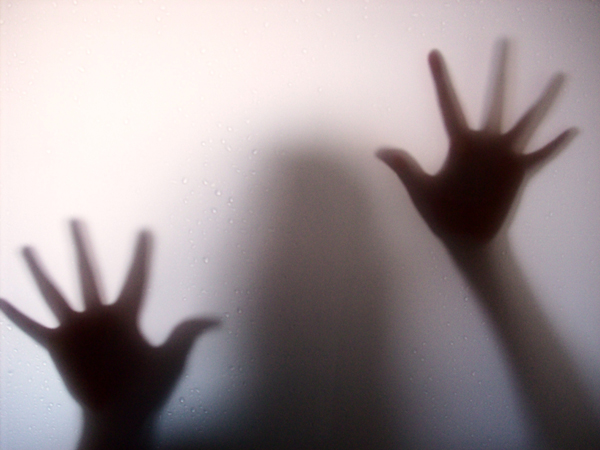By Kelly Patricia O’Meara
February 10, 2016
Despite having no evidence that screening adolescents for the alleged major depressive disorder (MDD) leads to improved health, this week the U.S. Preventive Services Task Force (USPSTF), an independent panel of experts, recommended that screening for MDD in adolescents aged 12-18 years “should be implemented.”[1] Such failed screening methods in the past have caused 84 percent of screened teens to be falsely labeled as depressed[2] and put at risk of being prescribed antidepressants that harm and cause suicide.
Not only is there no evidence to support such drastic and intrusive mental health policy for children, the USPSTF admits only a “moderate certainty” that screening for MDD in adolescents “has a moderate net benefit.” At the same time, it notes “the causes of MDD are not fully known,” while suggesting that it may “likely involve a combination of genetic, biological, and environmental factors.”
USPSTF experts are misleading the American public because MDD is, like all psychiatric diagnoses, completely subjective, a fact supported by the National Institute of Mental Health (NIMH). In 2013, Thomas Insel, Director of the NIMH, admitted psychiatric diagnosing lacks validity and is unlike the rest of medicine that has physical tests to confirm a disease. Mental health “diagnoses are based on a consensus about clusters of clinical symptoms, not any objective laboratory measure,” he said.[3] As for genetic or biological causes, David Kupfer, Chairman of the American Psychiatric Association’s Task Force on its Diagnostic and Statistical Manual of Mental Disorders (DSM5), said that in nearly 50 years, psychiatrists have not established “biological and genetic markers” for mental disorders and the prospect of finding any “remains disappointingly distant.”[4]
Of greater interest, though is the USPSTF’s misunderstanding of the harms associated with the psychiatric drugs that will be prescribed as “treatment.” The USPSTF claims that, psychiatric drugs used to “treat” depression, such as selective serotonin reuptake inhibitors (SSRIs) antidepressants, “have known harms.” But ignoring and attempting to mitigate the dangers, they say “the magnitude of the harms of pharmacotherapy is small….”

The FDA has issued its most serious black box warning for all antidepressants advising they cause suicidal ideation. Other side effects are mania, hallucinations, anxiety, aggressive behavior, irregular heartbeat and depression, to name a few.
“Small?” One wonders how these “experts” could have missed the last four months of publicly released studies of SSRIs, which paint a picture of a very large and even deadly problem associated with antidepressants. For example, the following are just a few examples of studies that describe the adverse events associated with antidepressants as anything but “small.”
- Danish researchers last month released the results of the largest-ever statistical analysis, reviewing and analyzing 70 antidepressant clinical trials of more than 18,000 participants and concluded that antidepressants doubled the risk of aggression and suicide in children and teens.[5]
- The Danish study comes on the heels of another large-scale study published in PLOS Medicine, which found young adults between the ages of 15-24 were nearly 50 percent more likely to be convicted of a homicide, assault, robbery, arson, kidnapping, sexual offense and other violent crime when taking antidepressants than whey they weren’t taking the psychiatric drugs.[6]
- And the PLOS study came on the back of another report exposing the fraudulent research of GlaxoSmithKline’s antidepressant, Paxil. According to the review of the data used for Paxil’s approval, Paxil is not safe or effective for adolescents and there is significant risk of suicide associated with the drug.[7]
- The Food and Drug Administration’s (FDA) most serious black box warning is attached to all antidepressants advising they cause suicidal ideation. Other side effects are mania, hallucinations, anxiety, aggressive behavior, irregular heartbeat and depression, to name a few.[8]
Based on IMS Health Vector One National database for 2013, nearly a million and a half children between the ages of 13-17 already are taking antidepressants. Is there any doubt if USPSTF’s subjective depression screening policy is implemented that the number of children being drugged with antidepressants won’t soar?
Congressman Ron Paul responded to the USPSTF recommendation, warning that “Mandatory depression screening will endanger people’s health by increasing the use of psychotropic drugs. These drugs often have dangerous side effects…another good reason to oppose any policy that will increase reliance on these medicines.” Furthermore, “Government health care mandates undermine the basic principles of a free society” and “tell us what types of health care we must receive,” he wrote.[9]
In this case, psychiatric intrusion could co-opt pediatricians and family doctors into routinely screening children and teens for depression.[10] The USPSTF is also not averse to children aged 11 years or younger being screened by primary care providers at their discretion.[11]
Vera Sharav of the Alliance for Human Research Protection (AHRP) has warned that mental health screening leaves “no room for individual choice—or the freedom for parents to say no to psychotropic drugs for their children. Such mandatory, government-endorsed screening programs contradict the freedoms guaranteed in a democratic society.”[12]
The entirety of the USPSTF’s recommended sweeping mental health screening is irresponsible, if not, deadly policy. Based on the ever-increasing number of studies that continue to expose the serious adverse consequences of antidepressant use in children, children must be safeguarded against this government-supported psychiatric intrusion—mental health screening—in their lives.
Kelly Patricia O’Meara is an award-winning former investigative reporter for the Washington Times’ Insight Magazine, penning dozens of articles exposing the fraud of psychiatric diagnosis and the dangers of the psychiatric drugs—including her ground-breaking 1999 cover story, “Guns & Doses,” exposing the link between psychiatric drugs and acts of senseless violence. She is also the author of the highly acclaimed book, Psyched Out: How Psychiatry Sells Mental Illness and Pushes Pills that Kill. Prior to working as an investigative journalist, O’Meara spent sixteen years on Capitol Hill as a congressional staffer to four Members of Congress. She holds a B.S. in Political Science from the University of Maryland.
References:
[1] http://www.uspreventiveservicestaskforce.org/Page/Document/
RecommendationStatementFinal/depression-in-children-and-adolescents-screening1#Pod3
[2] Cathie Adams, “Mental Health Screening for Texas Kids,” Texas Eagle Forum, Feb 2007, http://www.aliveandwell.org/html/the_bigger_picture/US_Government_Pushes_Mental_Health_Tests.html.
[3] Thomas Insel, “Transforming Diagnosis,” NIMH Website, 20 Apr. 2013, http://www.nimh.nih.gov/about/director/2013/transforming-diagnosis.shtml
[4] “Statement by David Kupfer, MD,” American Psychiatric Association, News Release No. 13-33, 3 May 2013, https://www.madinamerica.com/wp-content/uploads/2013/05/Statement-from-dsm-chair-david-kupfer-md.pdf.
[5] Sarah Knapton, “Antidepressants can raise the risk of suicide, biggest ever review finds,” The Telegraph, 27 Jan 2016, http://www.telegraph.co.uk/news/health/news/12126146/Antidepressants-can-raise-the-risk-of-suicide-biggest-ever-review-finds.html.
[6] Karen Kaplan, “Rx for violence? Crime risk rises for young people on antidepressants, study says,” Los Angeles Times, 15 Sep 2015, http://www.latimes.com/science/sciencenow/la-sci-sn-antidepressant-ssri-violent-crime-risk-20150915-story.html.
[7] Ashley Welch, “Popular antidepressant Paxil not safe or effective for teens, study finds,” CBS News, 16 Sep 2015, http://www.cbsnews.com/news/paxil-antidepressant-ineffective-unsafe-for-teens-study-finds/.
[8] https://www.nlm.nih.gov/medlineplus/druginfo/meds/a689006.html; http://www.fda.gov/Drugs/DrugSafety/PostmarketDrugSafetyInformationforPatientsandProviders/ucm161696.htm.
[9] http://ronpaulinstitute.org/archives/featured-articles/2016/february/07/mandatory-depression-screening-is-a-depressing-thought/.
[10] Carina Storrs, “All teens should be screened for depression, task force recommends,” CNN, 8 Feb 2016, http://www.cnn.com/2016/02/08/health/teen-depression-screening/index.html.
[11] http://www.uspreventiveservicestaskforce.org/Page/Document/RecommendationStatementFinal/depression-in-children-and-adolescents-screening1#Pod3.
[12] Vera Sharav, Alliance for Human Research Protection (AHRP), http://ahrp.org/two-thirds-foster-care-children-in-mass-on-psych-drugs_globe-psychiatry-soviet-experience-american-fallacy/, 11 Aug. 2004.



